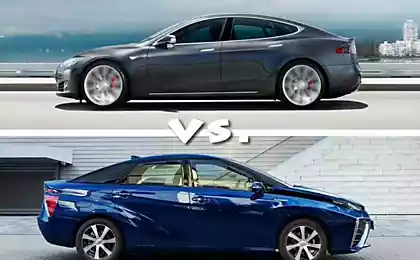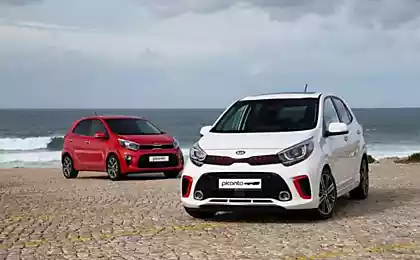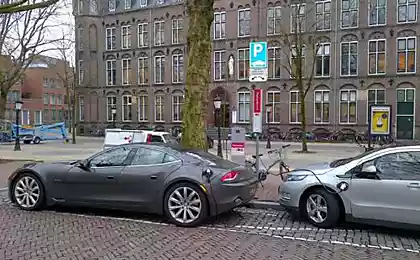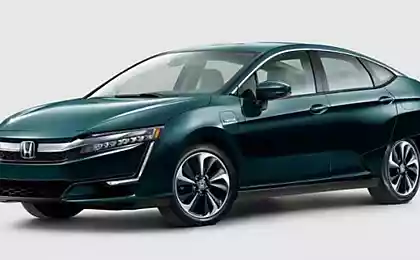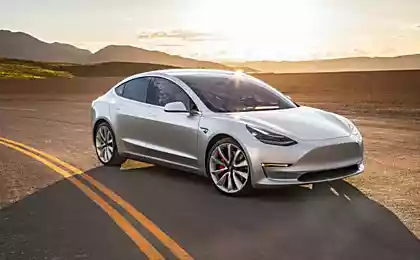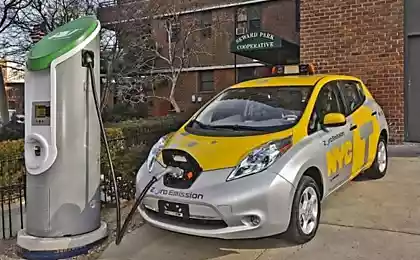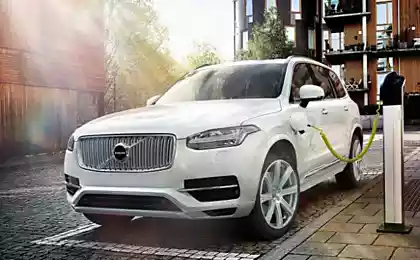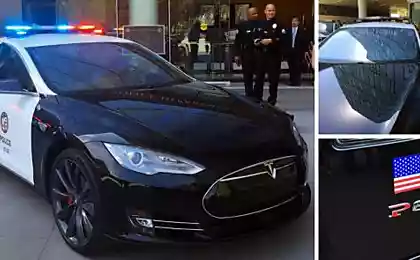582
Electric city
Electric vehicle (EFV) have become increasingly popular. In recent years, the society finally beginning to recognize their advantages and to encourage the use of plug-in vehicles.
Although ETS are considered to be somewhat "cars of the future", there is the growing power of the global movement, through which the ubiquity of electric cars can become a reality today. The international energy Agency (IEA) in a recent large study has analyzed this trend and found that one-third of all used in the world of electric vehicles is concentrated on the road only 16 cities and regions.
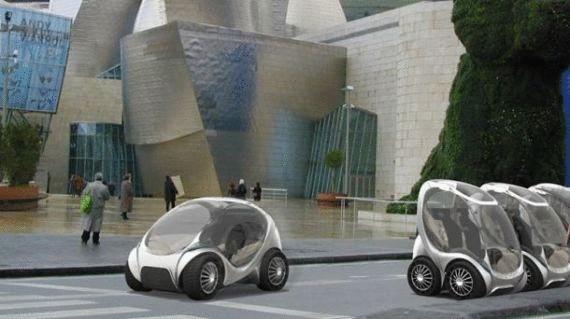
The greatest successes can boast Kanagawa (Japan), where the electric vehicle 2 was 183. The local government aims by the end of 2013 to increase the number of ETS to 3,000 — a modest goal, given that it sold over 3 000 hybrids for the first five years after their appearance on the market.
In second place settled in Los Angeles. Mayor Antonio Villaraigosa wants to turn the "world capital of cars" in the "world capital of electric vehicles." The ambitious goal of 80 000 ETS by 2015 would be a surprise for those familiar with the history of the spread of plug-in transportation in the region. In the 90 years, the automakers have released in California about 5, 000 electric cars. A few years later they were all destroyed or donated to museums as the local government warned consumers distrust eco-friendly cars. Policy changes Los Angeles has led to the fact that now there was more than 2,000 ETS.
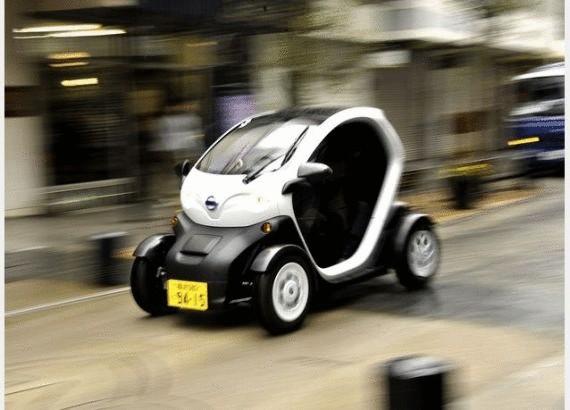
The best result among the European cities with 1,100 electric vehicles — belongs to Rotterdam. Taking into account the ratio of the number of ETS to the number of vehicles with internal combustion engines, the Dutch city will be ahead of the rest: 532 electric cars per 100,000 registered vehicles. These statistics can be a thorn in the side of the mayor of London Boris Johnson, which aims to transform the British capital into a "European capital of electric vehicles". London is not up to this purpose.
In the IEA study examined in depth the initiatives implemented in these 16 cities and regions, as well as energy infrastructure and transport mobility. It was found that in all of these areas are actively used various innovative methods and programs. Although some approaches are tailored to each city, many of the strategies are common. For example, drivers of electric cars proposed financial and non-financial incentives, such as tax incentives, subsidies for the purchase of reduced vehicle tax, free Parking and access to the strips restricted. The strategy also includes special projects, exemplified by the electric car tour in Hakone (a town in Kanagawa Prefecture). Other leading cities include Amsterdam, where the Car2Go service (rental electric cars), and Barcelona, where owners of electric motorbikes can free recharge their vehicles in the territories of hotels and University campuses.
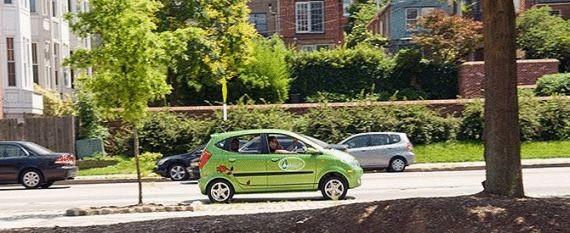
Some of the projects attracted international attention. Shanghai led a special program (the Electric Vehicle Initiative), aiming to build a demonstration base for exploring sustainable development of urban transportation, organize automotive clubs and to create an international communication platform. In the framework of this program in China was established a training center to educate the public about the development of the ETS, history and future trends, as well as to promote environmental benefits of electric vehicles. The program was presented in the United States and received positive responses from France, Germany, Japan, Sweden, Spain, Denmark, South Africa and Portugal.
Each of the 16 leading cities and regions has big plans for the future and intends to increase the number of ETS. Their goals are supported by national governments. By 2020 China and the United States plans to sell 2 500 000 electric cars. The European Union is more optimistic figures, and expects by 2020 to have on their roads 20 000 000 ETS.
It is not clear whether it achieved this ambitious goal over the next eight years, but the IEA study shows that we are definitely on the right track.
Source: /users/104
Although ETS are considered to be somewhat "cars of the future", there is the growing power of the global movement, through which the ubiquity of electric cars can become a reality today. The international energy Agency (IEA) in a recent large study has analyzed this trend and found that one-third of all used in the world of electric vehicles is concentrated on the road only 16 cities and regions.

The greatest successes can boast Kanagawa (Japan), where the electric vehicle 2 was 183. The local government aims by the end of 2013 to increase the number of ETS to 3,000 — a modest goal, given that it sold over 3 000 hybrids for the first five years after their appearance on the market.
In second place settled in Los Angeles. Mayor Antonio Villaraigosa wants to turn the "world capital of cars" in the "world capital of electric vehicles." The ambitious goal of 80 000 ETS by 2015 would be a surprise for those familiar with the history of the spread of plug-in transportation in the region. In the 90 years, the automakers have released in California about 5, 000 electric cars. A few years later they were all destroyed or donated to museums as the local government warned consumers distrust eco-friendly cars. Policy changes Los Angeles has led to the fact that now there was more than 2,000 ETS.

The best result among the European cities with 1,100 electric vehicles — belongs to Rotterdam. Taking into account the ratio of the number of ETS to the number of vehicles with internal combustion engines, the Dutch city will be ahead of the rest: 532 electric cars per 100,000 registered vehicles. These statistics can be a thorn in the side of the mayor of London Boris Johnson, which aims to transform the British capital into a "European capital of electric vehicles". London is not up to this purpose.
In the IEA study examined in depth the initiatives implemented in these 16 cities and regions, as well as energy infrastructure and transport mobility. It was found that in all of these areas are actively used various innovative methods and programs. Although some approaches are tailored to each city, many of the strategies are common. For example, drivers of electric cars proposed financial and non-financial incentives, such as tax incentives, subsidies for the purchase of reduced vehicle tax, free Parking and access to the strips restricted. The strategy also includes special projects, exemplified by the electric car tour in Hakone (a town in Kanagawa Prefecture). Other leading cities include Amsterdam, where the Car2Go service (rental electric cars), and Barcelona, where owners of electric motorbikes can free recharge their vehicles in the territories of hotels and University campuses.

Some of the projects attracted international attention. Shanghai led a special program (the Electric Vehicle Initiative), aiming to build a demonstration base for exploring sustainable development of urban transportation, organize automotive clubs and to create an international communication platform. In the framework of this program in China was established a training center to educate the public about the development of the ETS, history and future trends, as well as to promote environmental benefits of electric vehicles. The program was presented in the United States and received positive responses from France, Germany, Japan, Sweden, Spain, Denmark, South Africa and Portugal.
Each of the 16 leading cities and regions has big plans for the future and intends to increase the number of ETS. Their goals are supported by national governments. By 2020 China and the United States plans to sell 2 500 000 electric cars. The European Union is more optimistic figures, and expects by 2020 to have on their roads 20 000 000 ETS.
It is not clear whether it achieved this ambitious goal over the next eight years, but the IEA study shows that we are definitely on the right track.
Source: /users/104






